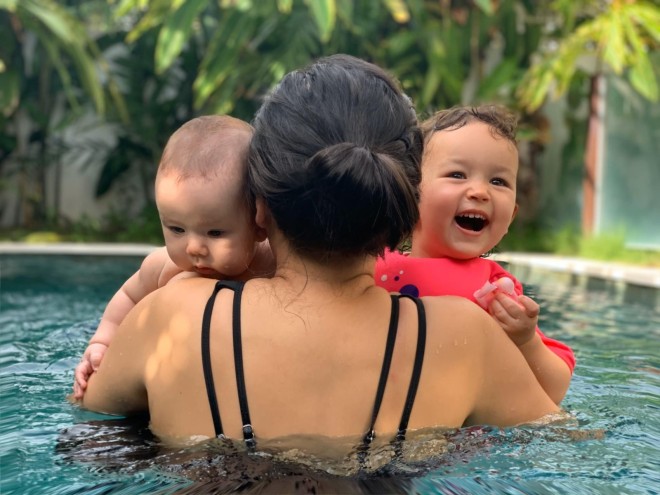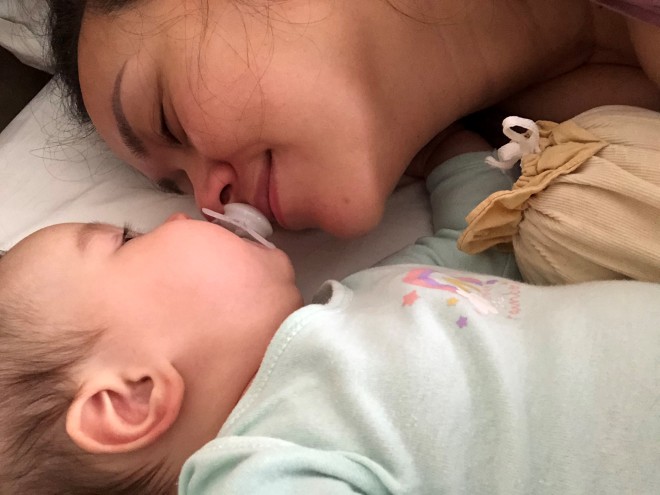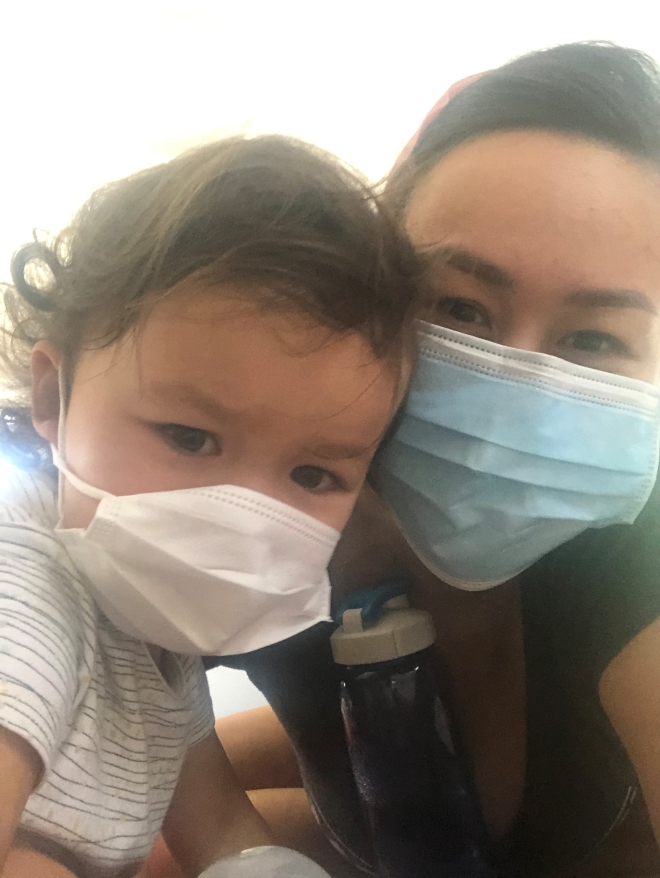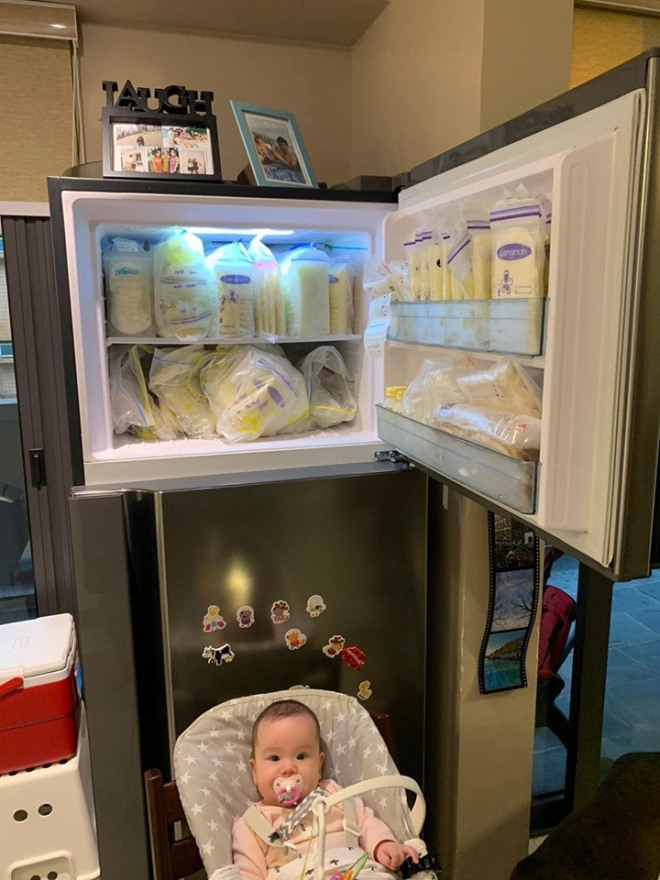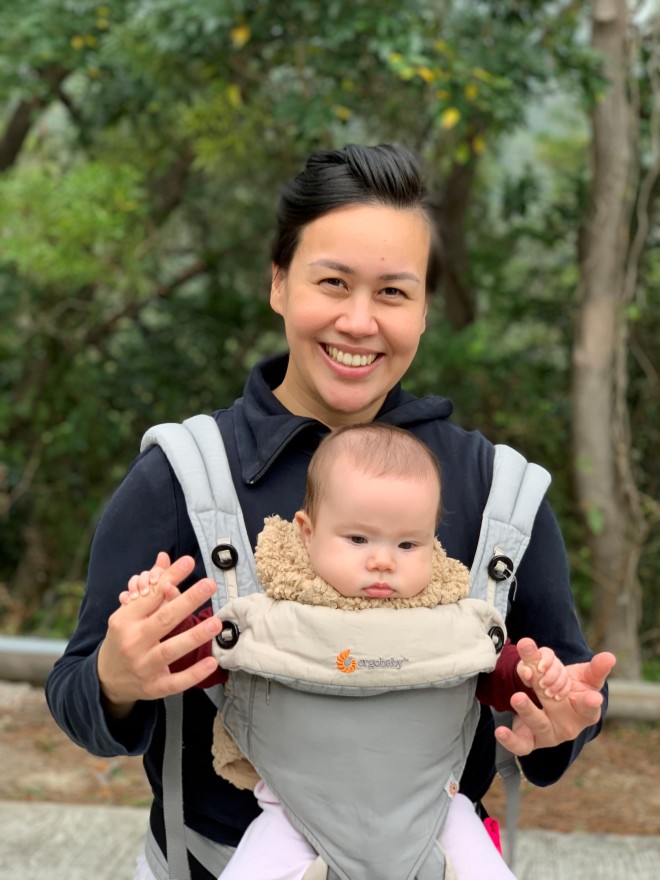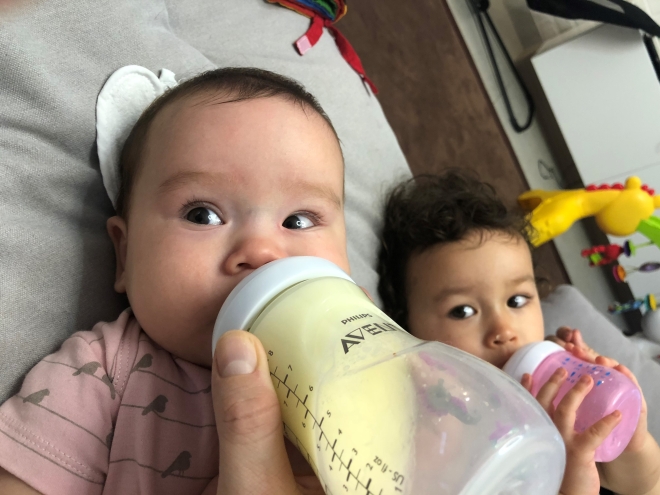
When Juergen Ditz’s wife Catherine was diagnosed with the novel coronavirus, his whole world was turned upside down. She was put into isolation in hospital, while he and their two young daughters, aged just 4 months and 21 months, had to quarantine. Things took a turn for the worse when their frozen breast milk supply ran out, and the baby suffered a severe reaction to formula. Here he tells his story:
By Juergen Ditz, Guest Writer
The Lead Up
When Catherine told me she wasn’t feeling well I didn’t think too much of it. I told her to relax and just take it easy. She had a fever and just felt crap. The new coronavirus crossed our minds but we thought it was probably flu, or perhaps fatigue from travel as we had just got back from Bali and had a tough journey back with two very young kids.
The next day things were no better, she had pain in her legs and the fever was back. Our minds tossed things over: Could it be flu? What about dengue? There have been a lot of cases in Bali this year.
Please don’t let it be COVID-19
She decided to isolate herself in the guest bed room, I brought her food and drinks in exchange for pumped breast milk. It was a sign of things to come.
The next morning suddenly she felt a lot better. No more fever, no more pain. We got our hopes up that it was just a little bug. But by 4pm she was back in the guest room feeling terrible and by 7pm she was finding it harder to breathe.
She felt like a stack of bricks was on her chest
I called the Hong Kong health authority hotline and explained the situation but they said to call 999. The ambulance came within 15 minutes. I gave her a kiss on the cheek and promised her I’d keep the kids safe.
My wife was gone… and no one knew for how long.
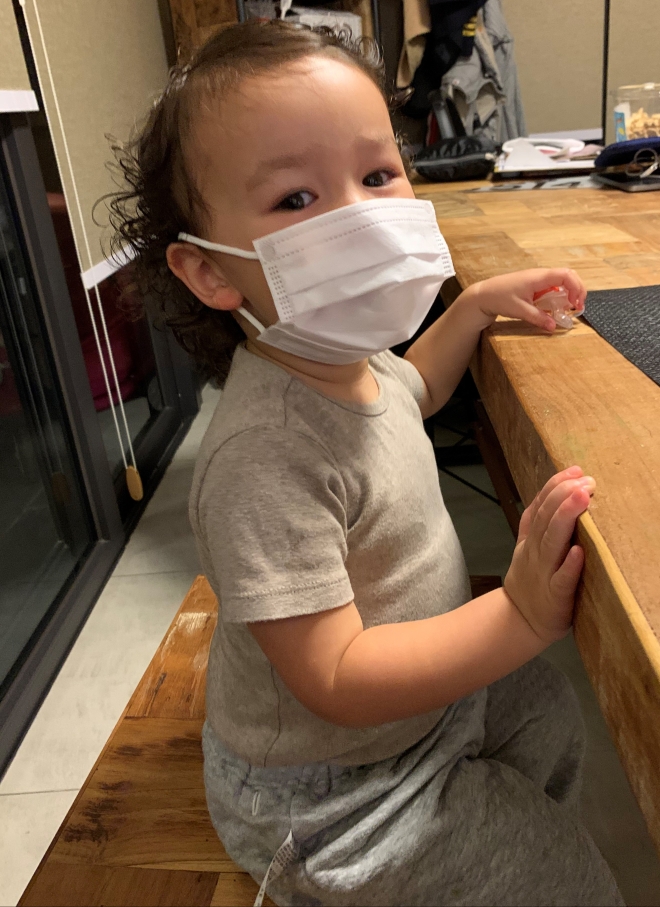
The Bomb
Catherine had x-rays which indicated she had the novel coronavirus but needed blood and swab tests to confirm the results. She was put in isolation while awaiting the results.
Neither of us slept.
Back at home, so many things were going through my mind. If she was positive, what would it mean for us. How long would our two young children – just 4 months and 21 months – be without their mother, or me without my wife.
And how could we feed our breastfed baby, without breast milk?
At noon, the doctors told her it wasn’t dengue. It’s a strange situation when that news comes as a blow.
I feared the worst… I was right.
That evening Catherine was given a preliminary diagnosis of COVID-19. We still needed the final confirmation, but we knew it was likely to be positive.
I was in tears but I had to stay strong. I called my family and a few friends, and asked for their help. I knew I’d need it over the next few weeks as I quarantined with our children.
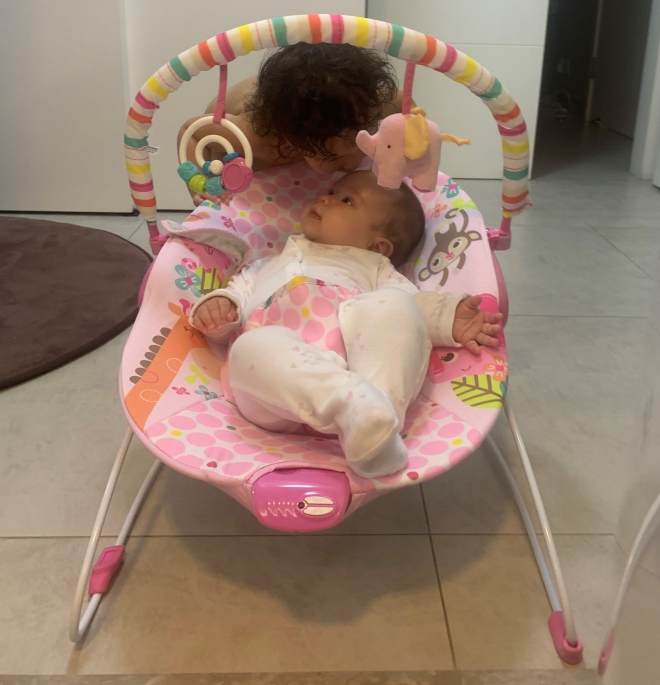
Stocktake
The proposed treatment for Catherine was a two weeks of anti-retrovirals, usually used for HIV cases, plus antibiotics and vitamin C. The doctors were clear she could not breastfeed and we had no idea when she might be discharged.
The news then went from bad to worse.
I did an inventory of our frozen breast milk stash. I didn’t know exactly how much our 4-month-old drank since she mostly fed directly from her mummy. So I kept a log to see how much she needed and worked out it was around one litre a day.
Catherine had pumped from the early days, so a quick count of all the bags, showed we had enough for about nine to ten days. On average patients get out within three weeks, but this virus is unpredictable.
It was not enough milk to get us through till mummy came home.
And even if and when she was discharged, we still didn’t know if she would even be able to breastfeed again.
Looking down the barrel of two plus weeks in quarantine as a single parent, I realised life was going to be different for a bit.
A new routine started to kick in, we slept in, we had long breakfasts, we made pancakes together. There were long naps and long baths. We made the most of rooftop activities as we have a terrace and some swings so that helped, so did short bursts of Peppa Pig.
I did all that with the iPad in tow to keep Catherine involved
I knew seeing the baby would help with her milk production (she was having to pump and dump her milk in hospital, but was holding on to the idea that she would be able to nurse again on day).
So we didn’t just have conversations on FaceTime, no, we tried to have recreate family life – long distance.
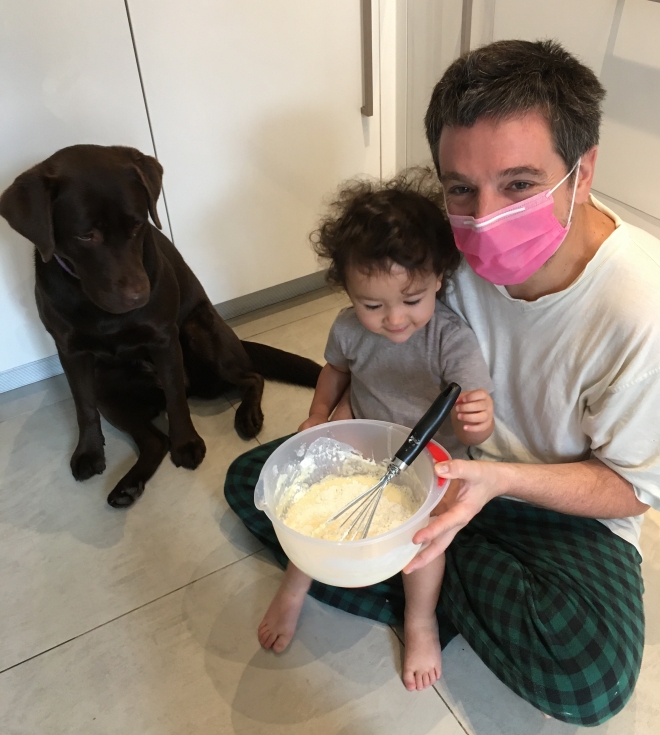
Allergic Reaction
As the breast milk was running out I had no choice but to try formula. We’d hoped the baby would breastfeed until at least a year, so to cut it short at four months, was sad.
We bought formula for the “in case of” situations that you think will never happen to you. We never had any intention of using it unless something dire happened to my wife.
But something dire did happen…
I started off with the first bottle after lunch, just in case there was a reaction I knew it was best to trial it in the day.
The first 50ml went down okay, but then our daughter’s skin started to turn red and some blisters formed on her neck. I knew then that this was an allergy.
I was about to call the ambulance.
But I called our midwife and paediatrician first and they advised using antihistamines, which cleared the rash within two hours.
But looking at the dwindling stash of frozen breast milk, I knew we were in trouble.
We were in quarantine so I couldn’t go in to a doctor or a clinic, or shop around for different formulas in the hope that our baby might not be allergic to one of them.
The hospital wouldn’t allow Catherine to keep the milk she was pumping, and the discussion to have our baby in isolation with my wife wasn’t even entertained by the doctors. This is despite the World Health Organization stating that mothers with COVID-19 that wish to breastfeed, should be supported to do so safely.
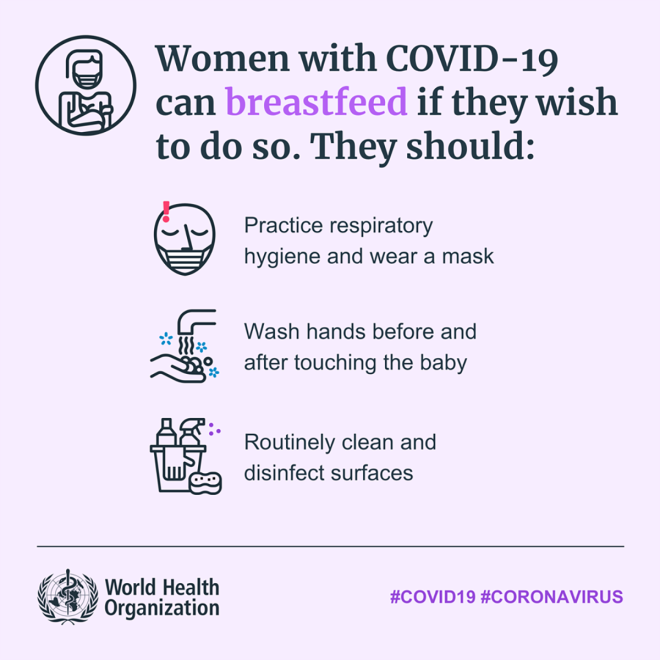
The Power of Social Media
Once the children were asleep, Catherine and I talked things through. Our choices were limited: either sending the baby to be admitted into a public hospital once I ran out of milk, or to search for donations.
We opted for the latter and while friends of ours gave some bags of milk that would keep us going a few more days, it wasn’t a long term solution.
We needed more breast milk.
My wife posted in Hong Kong Breastfeeding, a Facebook group, and within hours mums across the city started pumping for our baby.
The admins contacted me to check my freezer space, and how much I had left. They told me not to worry.
Milk was on its way!
When the milk arrived, delivered by volunteers and dropped off according to quarantine rules, I was in tears and speechless. There was more than 10 litres of liquid gold, nicely packed, clearly labelled, and well organised.
I couldn’t believe it. In a place that is usually all about money, I saw real community spirit.
The baby took the new milk with no problems and it was as if a huge weight was lifted from all of us.
Then a week later Catherine returned home.
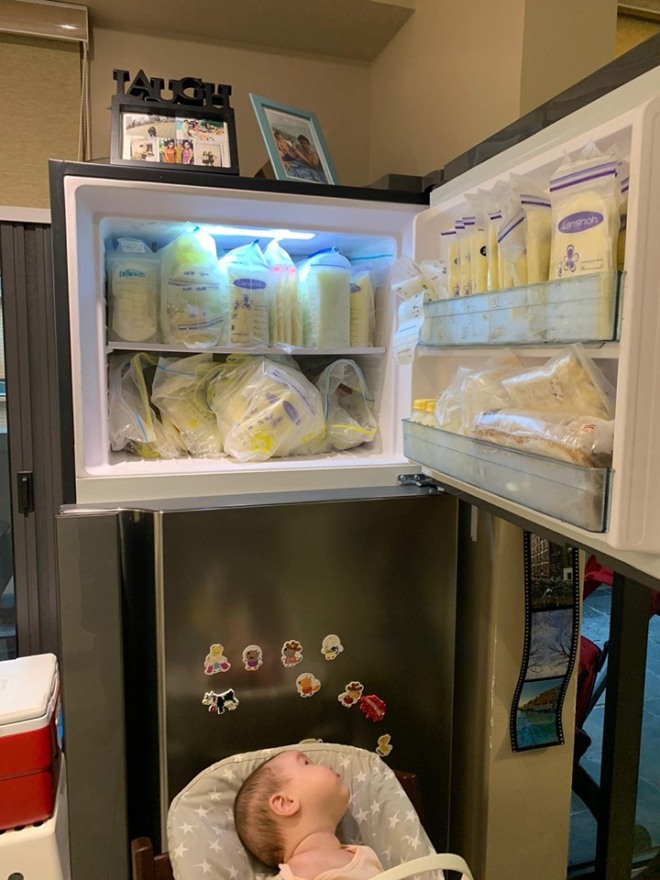
What I Learned
I have always been a hands on dad – having children in my early 40s meant I had already done all the backpacking, the junks, the messy nights partying, and the boozy races in Happy Valley. In a town where domestic help is affordable and social pressures are high, there are a lot of men who make you wonder if they really want to be dads, or if they just want to have children – these are two totally different things.
I love being a dad so I have spent a lot of time with my daughters since day one. So being a single dad while Catherine was in hospital was – looking back now – not the main issue. It’s not unusual for me to handle the bathing, the changing, the feeding, and the nappies and we had friends and neighbours to help with supplies during quarantine.
The tough bit was that we were quarantined and we couldn’t bring in my mother or sister, or my in-laws to help. We were limited to our space and I couldn’t occupy the girls with adventures outside the house. Instead I slowed our pace of life right down – long baths and lie-ins, cooking together and playing together.
I split the time up into blocks of five days, and it made the time go a lot easier than if I had thought of it was a 2-3 week stretch. In these tough situations, you quickly realise what you are capable of, and what you can achieve – you have no choice.
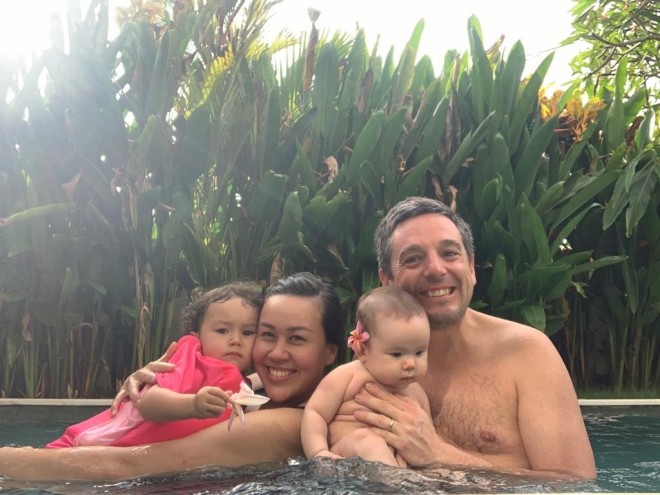
Family Reunited

Want to help normalise breastfeeding and get involved with #Ittasteslikelove?
Here’s how: Write for us, Model for us, Debate with us, Support us
© Ittasteslikelove 2020. All rights reserved.
